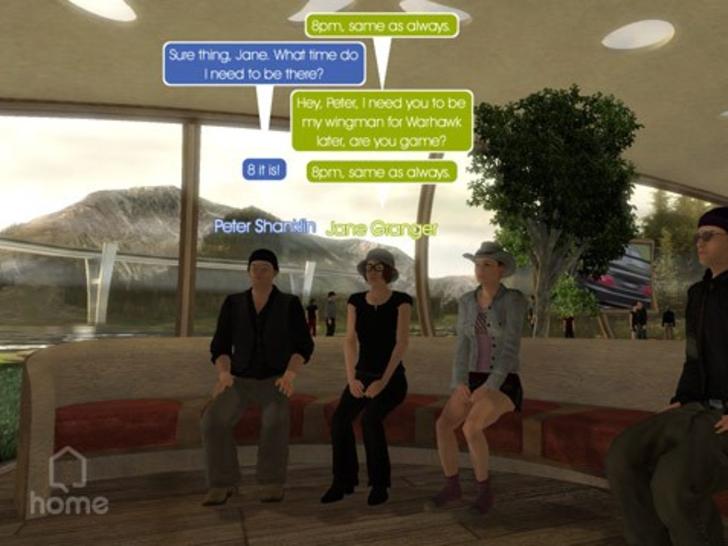Do virtual worlds pose massive threat to online safety?
Murder, virtual rape, theft: just some of the dangers in online worlds

Sign up for breaking news, reviews, opinion, top tech deals, and more.
You are now subscribed
Your newsletter sign-up was successful
The boundaries between the real world and online virtual communities is becoming ever-more blurred. And as a result, people are now seriously at risk from falling victim to deviant and even criminal behaviour in online communities like Second Life.
That’s according to highly-regarded criminologist, Dr Matthew Williams from Cardiff University, who says a watershed in the development of online virtual words has been reached. This has made virtual worlds a very ripe target for fraudsters, sexual perverts and social deviants, he says.
“Ever since Active Worlds was created back in the mid-nineties, people have been victimised by deviant behaviour. It’s because many people see online worlds as not being real, so they are less inhibited in the way they act towards other people.
“And while some people are causing trouble in places like Active Worlds and Second Life, there are even more people who are leaving themselves wide open to attack,” he says.
Second Life has a good safety record
In an interview with TechRadar, Dr Williams said that many people open themselves up to being attacked because they don’t perceive virtual words as being ‘real’. And as these worlds become more graphically realistic, they attract more people, leaving even more at risk.
“The threats vary. It might simply be someone being sworn at by a nasty person who doesn’t mind insulting or upsetting people. But there are also cases of accounts being hacked, and property and currency being stolen. There is also the very real danger of children being groomed by paedophiles, especially if people are tempted to meet their virtual friends in real life."
Sign up for breaking news, reviews, opinion, top tech deals, and more.
The problem here is that the harassment and stalking that can take place online, can manifest itself offline.
Dr Williams cited a case where a woman was persuaded to meet a man she’d met in the Active Worlds community. After meeting him, she was never heard from again. And when police raided the man's house, they found she’d been murdered, along with several other women, and stuffed in barrel in the man’s garage.
“That’s a very extreme example, of course. But it does demonstrate the dangers. People need to be aware that they don’t really know who they’re talking to.”
Police interest in virtual worlds
British police recently took an interest in Second Life, due to concerns that its thriving virtual economy – which has a real currency – has the potential to attract criminal activity.
“We’ve reached a watershed in the development of these words. They’re more realistic than ever now. And the most interesting thing is that real-world police are now taking an active interest. In years gone by, police forces just have not had the man power nor the expertise to keep an eye on virtual online worlds. But that might now be changing,” Dr Williams said.
One of the biggest risks, says Dr Williams, is that ultimately these virtual words are just pieces of software. And as such, there might be loopholes that could be exposed by hackers, which could lead to user accounts being compromised.
“We saw it with Active Worlds, where some people found a way to get access to other users’ accounts without even having to use Trojans and keyloggers. And even though security is very tight, that only represents a bigger challenge for skilled hackers,” he said.
Just a game? Or serious risk?
Dr Williams said that it’s interesting how people’s attitudes to online worlds change over time. He said that when people first sign up, they often flout the rules and don’t mind using bad language and upsetting people. Over time, they find they’ve invested a lot of themselves in their avatar (online character) at which point they often become very militant in their defence of their community.
“At first, people often treat it like a game and so are not as security conscious as they should be. And what it all boils down to is that we once thought that these online words were just a fad. But now they’re becoming so realistic, the popularity is increasing. And the more people who use these worlds, the more ripe a target they are for people looking to cause trouble. There’s a fortune to be made.”
Dr Matthew Williams lectures in criminology in the School of Social Sciences at Cardiff University. In 2006 he wrote a book on the subject called Virtually Criminal: Crime, Deviance and Regulation Online.

James was part of the TechRadar editorial team for eight years up until 2015 and now works in a senior position for TR's parent company Future. An experienced Content Director with a demonstrated history of working in the media production industry. Skilled in Search Engine Optimization (SEO), E-commerce Optimization, Journalism, Digital Marketing, and Social Media. James can do it all.